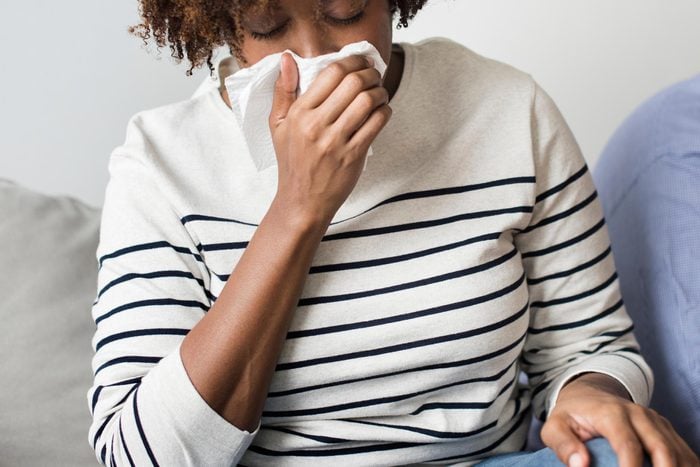
How to control fall allergy symptoms
If you experience seasonal allergies, a change in seasons, like from summer to fall, could mean a few months of sneezing, coughing, headaches, and itchy eyes (just to name a few.) Even before the fall starts, many people with fall allergies will notice flare-ups due to the presence of ragweed pollen in late summer—the most common trigger for hay fever. Ragweed allergies can also cause asthma symptoms for those with allergic asthma.
Ragweed is unavoidable in most places in North America during the fall, but there are preventative steps you can take to avoid the exacerbation of fall allergies and flare-ups. Allergists and immunologists discuss their fall allergy tips to help you get control of your allergy symptoms before they start.

Get a head start on your meds
Don’t wait until an allergy attack takes hold—just as you might take zinc at the first sign of a common cold, you should apply the same approach to allergy season. “I recommend starting allergy medications one to two weeks before the season starts. That way you already have control of your potential symptoms before things get really bad,” says Merritt Fajt, MD, an allergist and immunologist at the University of Pittsburgh Medical Center in Pennsylvania. If you’re particularly sensitive to the ragweed pollen of fall, start your medications at the end of August.

Strip after being outdoors
“Change your clothing as soon as you come inside. This ensures you don’t continue to be exposed to any outdoor allergens and you don’t track it around the house,” says Dr. Fajt. Even better: Hop in the shower to quickly rinse any pollen from your body and hair.
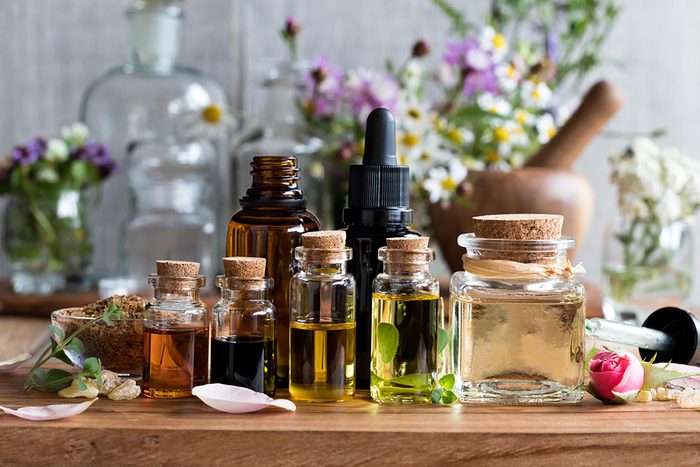
Steer clear of homeopathic allergy treatments
“There are plant-based antihistamines available but they’re not particularly effective, and you can never tell what you’re getting with these unregulated products, so buyer beware. Traditional antihistamines are safe and work just fine,” says Richard Lavi, MD, allergist and immunologist at the Allergy Asthma & Sinus Relief Center in Twinsburg, Ohio. (Here’s what you need to know before you buy a neti pot.)
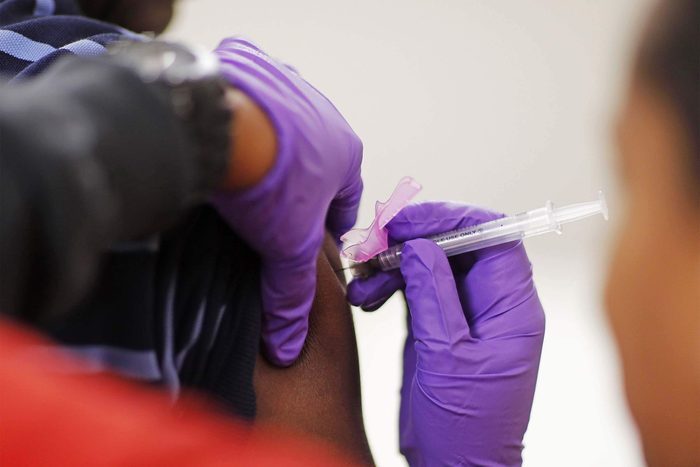
Get a flu shot
Allergies can be particularly difficult for people with asthma since they irritate already sensitive airways, and the same is true for the flu. In fact, both adults and children with asthma are more likely to develop pneumonia after catching the flu than those without, warns the Centers for Disease Control and Prevention (Take co). The flu vaccine reduces your chance of getting influenza by 40 to 60 percent.
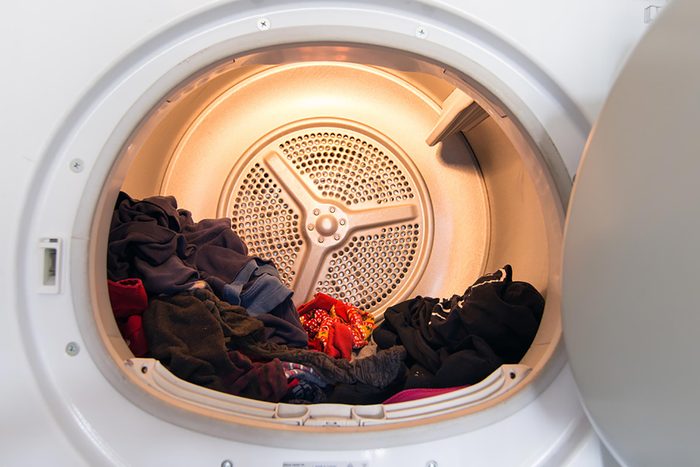
Dry clothing in a dryer, not outside
Letting clothes air dry outside might leave them smelling naturally fresh, but ditch the clothespins and clothesline if you struggle with allergies. They will attract pollen, which may trigger an allergy attack even if you’re inside. (Have a dust allergy? Here’s how to get it off your clothes.)
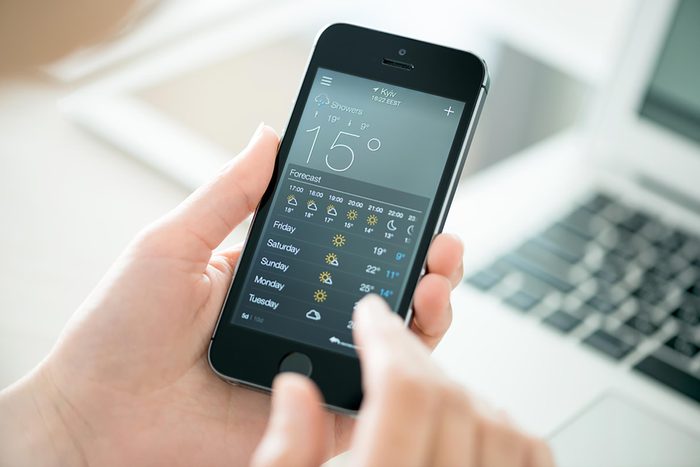
Keep an eye on pollen counts
The weather channel or a smartphone weather app can help you track fluctuating pollen levels. If it says the pollen count is moderate to high, take extra precautions and try to limit your time outside, says Dr. Fajt. (Also, take note of how allergists control allergies for themselves.)

Shut the windows at night
A cool fall breeze might sound like the ideal way to nod off at night, but sleeping with a window open could leave you with a serious allergy flare-up upon waking. “Pollen can blow in when you’re sleeping, and if leaves get rained on, there could also be mold,” says Dr. Fajt. If you forget to close one, wipe off nearby surfaces the next morning to get rid of anything that might have entered overnight. (Here are other ways your house is making you sick.)
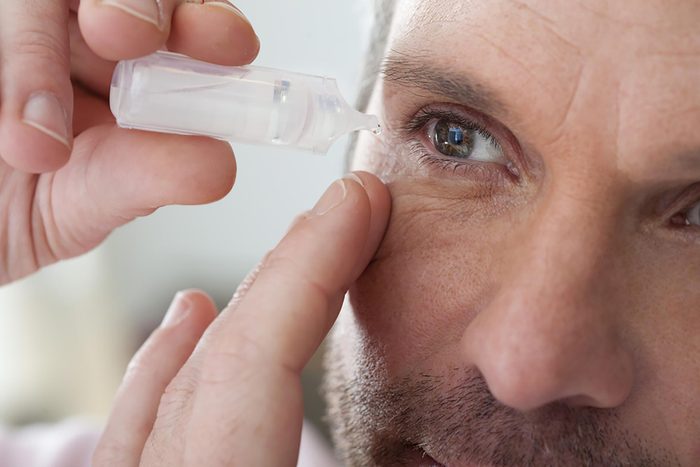
Invest in eye drops
Despite your careful precautions, allergy flare-ups can still take hold. If your eyes are itchy and red, eye drops are a quick way to relieve some of that discomfort. “A good trick is to keep them in the refrigerator—that way, they don’t sting and burn your already irritated eyes when they go in,” says Dr. Lavi.
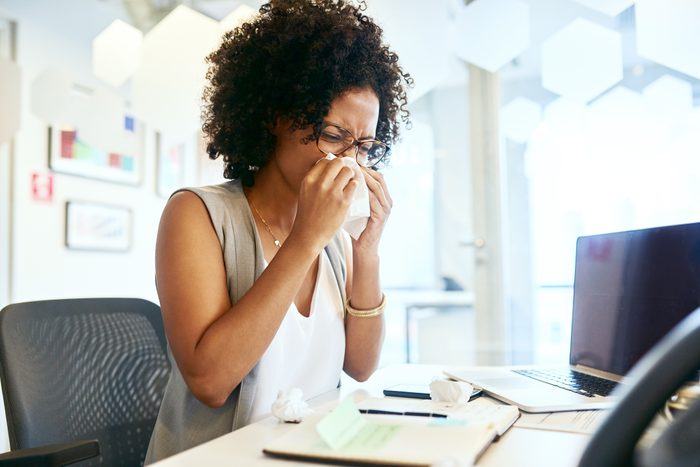
Use a sinus rinse
“Sinus rinses are really helpful, and I tell my patients to do one at night before bed,” says Sandra Hong, MD, an allergist and immunologist at the Cleveland Clinic in Strongsville, Ohio. “It’s like giving your sinuses a bath because it eliminates any pollen that may be stuck in your nasal passages and rinses out any mucus so you feel less clogged.” You can also do one immediately after being outside to prevent pollen from sticking around.

Ban pets from your bed
Dogs and cats can easily pick up pollen on their fur coats after being outside and transfer it to you during snuggle or nap time. “Wipe them down, if you can, and don’t let them sleep with you because it’ll almost surely trigger something,” says Dr. Hong. (Beware of these allergy myths.)
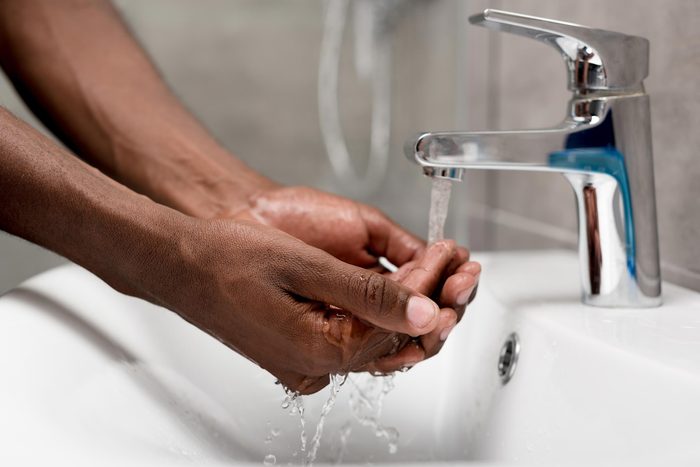
Wash your hands regularly
You’ll want to steer clear of cold and flu viruses, which could make your asthma and allergy symptoms even worse. Wash your hands for the CDC-recommended 20 seconds after spending time outside, using the bathroom, or being in public. This also applies to prevent SARS-CoV-2, the virus that causes Covid-19.

Avoid high-pollen areas
Stay away from areas that may trigger a flare-up, such as a field of ragweed or places with an abundance of fallen leaves. “If you must be around allergy triggers, remove yourself from the situation as soon as you start feeling symptoms,” says Dr. Fajt. (These are weird allergies you could have.)
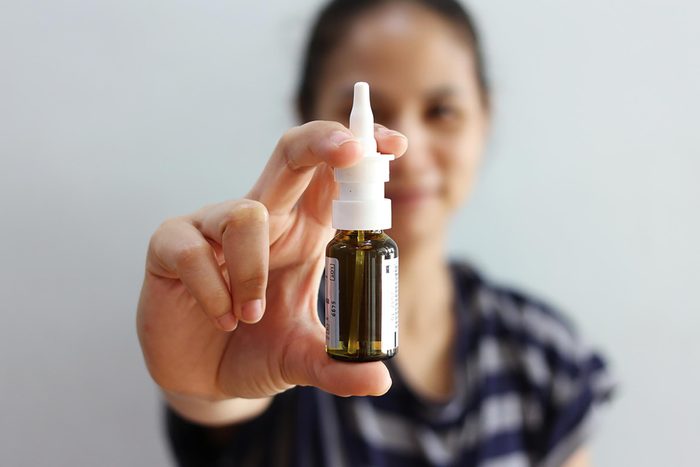
Maintain your regimen, even if you’re not getting flare-ups
“Keep taking your allergy medicine until fall officially ends. My patients are often great at the beginning of the season, but then they feel good so they stop taking their meds and their symptoms come back,” says Dr. Fajt. (Also, here’s what allergists want people with allergies to know.)
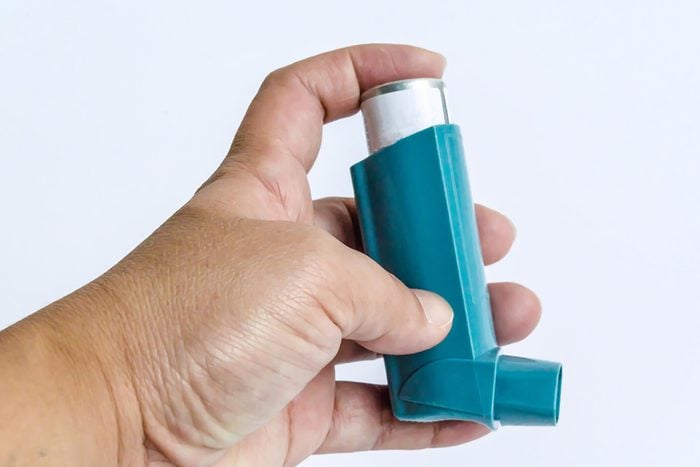
Stay on top of asthma medication
If you have asthma and allergies, autumn is not the time to lapse on your asthma medication. “For anyone with asthma who’s allergy-induced, I recommend they take their asthma medication regularly,” says Dr. Fajt. (Learn about these surprising asthma triggers.)

Wear sunglasses outside
“It’s a simple trick, but sunglasses can be really helpful because they protect from getting pollen directly in the eyes,” says Dr. Hong. Sunglasses can act as a physical barrier to prevent pollen from getting into your eyes. (Need help buying a pair of shades? Here’s how to choose the best polarized sunglasses.)
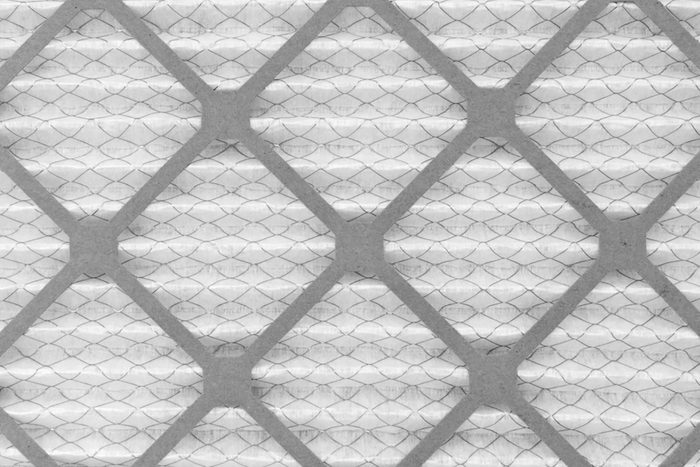
Replace your furnace filter
Before you crank up the heat, replace the filter on your furnace (you should do this anyway every three to six months). Look for one with a MERV (Minimum Efficiency Reporting Value) 11 or 12 disposable high-efficiency media filter, which helps remove contaminants in the air to improve indoor air quality. Tip: The higher the MERV rating, the more effective the filter is in removing the contaminants. Leave the fan on to create a “whole house” air filtration system to remove tiny airborne particles that can trigger allergies and asthma. Follow these other tips for allergy-proofing your house.
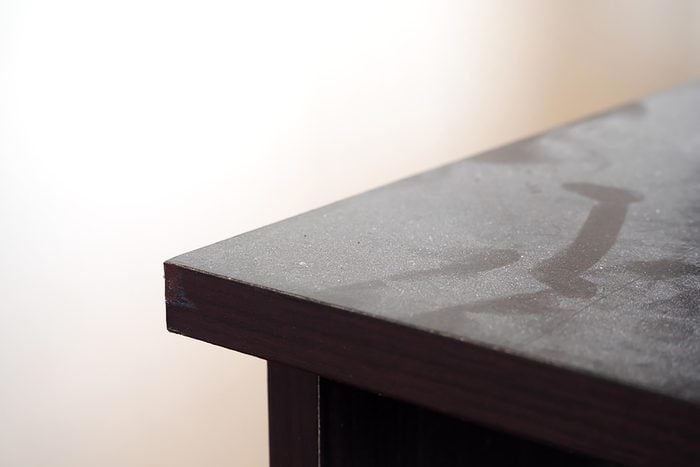
Control your indoor allergies
“If you have indoor allergies to things like dust, pet dander, or mold, controlling them means your seasonal ones won’t be nearly as bad,” says Dr. Hong. This is why an air purifier in the home can help curb indoor allergies and alleviate your seasonal allergies. (These are the risks of indoor air pollutants.)

See an allergist
If your allergies are particularly severe and preventative measures fail, consider making an appointment with an allergist; they can run tests to pinpoint what’s causing your allergy and asthma symptoms, then determine the right treatment. “For people whose symptoms aren’t getting better, allergy shots or immunotherapy may be a helpful long-term solution,” says Dr. Fajt. To find an allergist and learn more about allergies and asthma, visit allergyandasthmarelief.org.